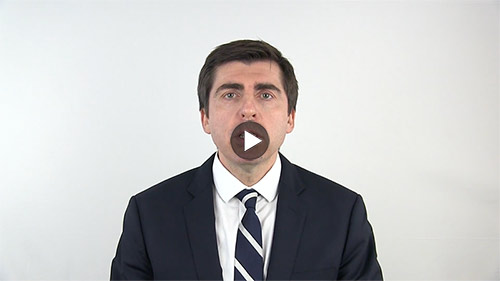Procedures to correct obesity can help save lives. Obesity-related health conditions are a leading cause of death, and many of these diseases resolve after bariatric surgery and significant loss of excess body fat.
However, there are associated risks with weight loss surgery, as is true with any surgical procedure. Vadim Gritsus, M.D. performs bariatric surgery with ultra-small incisions and a special surgical technique, pioneered by Dr. Gritsus, to reduce post-operative pain.
He is committed to surgical excellence and wants his patients to be well informed of the risks as well as the benefits before making the decision to undergo bariatric surgery in NJ.

Weight Loss Surgery Risks
New Jersey bariatric surgeon, Dr. Gritsus performs bariatric procedures laparoscopically, which carries a lower risk of
complications than open surgery. He has been practicing as a general surgeon in New Jersey since 2003 and is recognized as a leading laparoscopic and bariatric surgeon.
Risks Associated with the Procedure
Any surgery carries risks. With surgical procedures to correct obesity, the risks include:
- Infection
- Adverse reactions to anesthesia
- Bleeding excessively
- Blood clots (Thrombosis)
- Lung/Breathing problems
- Incisional hernia
- Gastrointestinal leaks
- Death (Extremely Rare)
Long-Term Risks and Complications
Certain complications can develop after bariatric surgery, depending on the procedure performed, the aftercare, and patient.
Potential long-term complications with weight loss surgery include:
- Hypoglycemia
- Dehydration
- Dumping Syndrome (with symptoms of nausea, diarrhea, or vomiting)
- Gallstones (caused by rapid weight loss)
- Obstruction of the bowel (also known as “internal hernia”)
- Intolerance to certain foods
- Indigestion (dyspepsia)
- Nutritional deficiencies (particularly calcium and iron)
- Stomach perforation
Statistically, only a very small percentage of our New Jersey bariatric patients experience major complications with the surgery. Many long-term complications, such as dumping syndrome and indigestion, can be managed with proper diet and eating techniques. Success with weight loss surgery requires a lifelong commitment to lifestyle changes.
When evaluating the risks associated with a particular procedure, it would be wise to also consider the risks you are avoiding by correcting obesity. In a recent study concerning the risks and benefits of bariatric surgery, researchers found that large percentages of life-threatening health conditions, such as Type II diabetes and hypertension (high blood pressure), resolved in formerly obese patients who had undergone laparoscopic gastric bypass surgery.
Obesity Surgery in New Jersey
If you are more than 100 lbs overweight, if your body mass index (BMI) is 40 or greater, or if you have a serious obesity-related health condition and a BMI of 35 or more, it is vital that you get medical help and get medical guidance and treatment for the obesity. It is important to understand that weight loss surgery is only a tool to help you resolve the problem. Long-term success in correcting obesity depends on you and requires a commitment to make permanent lifestyle changes.
Schedule a consultation with Vadim Gritsus, M.D. to learn more about your treatment options. He can help you determine if bariatric surgery is the right treatment for you.
Schedule a Consultation Today
Call today to schedule a private consultation in New Jersey

